Growing up, Saturday mornings were all about cartoons. I’d wait all week for the familiar theme songs and shows like Digimon and Pokémon. Looking back, I realize these weren’t just cartoons; they were a lifeline for a lonely child. My mom didn’t understand that while she saw them as a fad, they filled a void left by my absent father.
My name is Jordan Bruneau, and I’m a lifelong anime fan, a husband, and a father. I also struggle with mental illness, including anxiety and depression.
This article is about how anime has influenced and shaped my life. It wasn’t until I was a teenager that I truly understood the power of anime. It wasn’t just entertainment; it was art with the potential to teach valuable lessons about life, friendship, and perseverance.
There’s a special quality about anime that allows you to feel the passion of the creators. It’s like they’re pouring their hearts and souls into the stories and characters.
This connection is something I deeply cherish. Anime creators, like those in Japan, often grapple with complex issues like war, depression, and social problems. Their work offers a temporary escape from these harsh realities, reminding us of the beauty in life.
Evangelion
One anime that has profoundly impacted me is Evangelion. This complex series, released in 1995, is considered a groundbreaking work in the animation industry.
I remember being around 11 or 12 and browsing the anime section at Blockbuster. I begged my mom to rent “The End of Evangelion,” the movie sequel to the original series. She refused, wisely considering the mature content.
While I was disappointed at the time, it turns out she was right. Seeing that movie at such a young age might have been overwhelming. But even though I didn’t see it then, it became a significant part of my life later on. Even today, some viewers dismiss Evangelion as a mecha anime with religious symbolism. But that’s the beauty of art; it’s open to interpretation. Regardless of the creator’s original intent, the series has taken on a life of its own.
While I wasn’t raised in a particularly religious household, Evangelion sparked a curiosity within me. The show’s exploration of creation and human evolution challenged my understanding of the world. I won’t delve too deeply into religion or philosophy here, but it’s important to acknowledge how these themes connect to my love of anime. Stories that explore various belief systems and worldviews are especially captivating because they encourage me to examine my own.
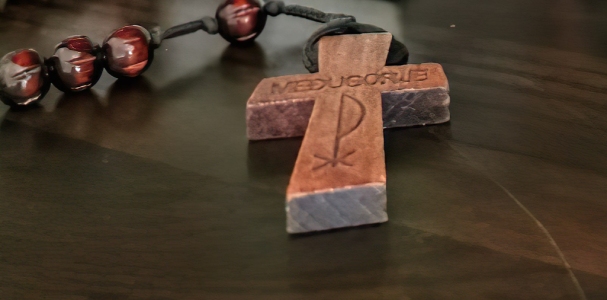
For instance, the anime series Neon Genesis Evangelion features a quote from the poet Robert Browning: “God’s in his heaven – All’s right with the world!” This line, taken from Browning’s poem “Pippa Passes,” suggests a belief in a natural order where everything happens for a reason.
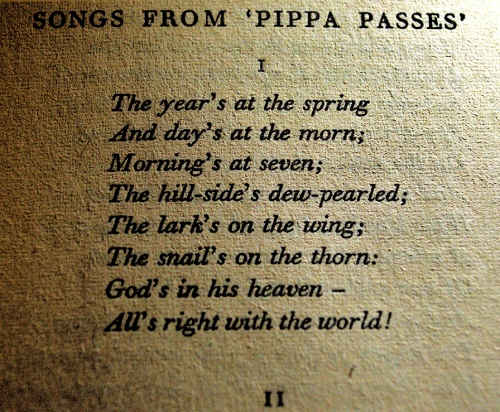
Here is also an image of the full poem I captured from my copy of “Browning – The Penguin Poets” printed in 1964
(you can still get a copy online I’m sure, but it thrilled me to find this in an old bookstore)
For me, this quote implies that God isn’t all-powerful. The world, with all its physical laws, is already set in motion. It’s a closed system, like a pendulum that swings back and forth until it eventually stops.
Even though the world can be a harsh place, filled with pain and suffering, there’s value in human connection. This is a core message I interpret from the ending of Evangelion, where spoiler alert humanity unites, only to realize that separation is necessary.
Hideaki Anno and Shinji
One anime character that deeply resonates with me is Shinji Ikari from Evangelion. Shinji is a flawed protagonist, burdened by the weight of the world. Unlike many anime heroes, he’s not brave or fearless. The series realistically portrays the mental toll of piloting a giant robot to save humanity.
Shinji cries, he doubts himself, and he struggles with depression. He’s often criticized for his lack of heroism, but I see him as a representation of the struggles we all face.
Society often tells men to “man up” and hide their emotions. But Shinji reminds us that it’s okay to be vulnerable. We all have a desire for our fathers’ love and acceptance. The creator of Evangelion, Hideaki Anno, has spoken openly about his own strained relationship with his father. I believe Shinji’s character may be a way for Anno to process his own trauma.
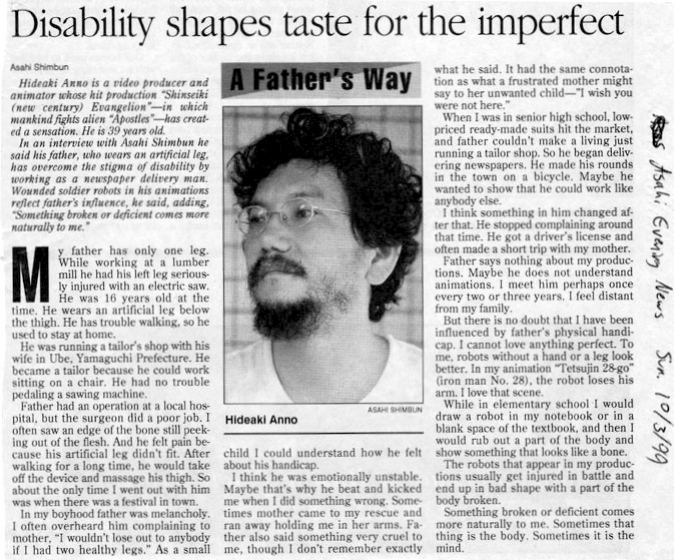
One night, I watched “The End of Evangelion” with my wife. Rewatching “The End of Evangelion” years later triggered repressed memories of my own childhood trauma and depression, it was a cathartic experience. The scene depicting Shinji playing alone with a sand pyramid deeply affected me. It mirrored my own childhood experiences of isolation and self-destruction. This scene haunts me every time I see it; the grainy filter, the unsettling music, and the doll-like faces of the other children all contributed to the scene.
This is depression. This was my childhood.
“Shinji is me” I thought to myself.
Though, it makes me feel better knowing that maybe I really am not alone. Maybe through art we can connect and help support each other.
I chose to talk about Evangelion at great length, not because it’s the “best” or even necessarily my favorite Anime. It’s not perfect, it’s actually quite depressing to watch, but I love Evangelion. It’s important to me. It helped me to realize that there is hope and we all suffer.
Conclusion
To all the fans, creators, writers, and artists throughout this industry, I want to thank you. Growing up an anime fan has been a difficult one, maybe not as much now, but when I was younger, it was hard to be an Otaku. Even people within the community know that it hasn’t always been a great social status, in Japan and around the world you’d be seen as weird or unhealthy in your obsession. And like anything in life there has to be that balance.
Anime has the potential for great escapism, and at times, this can be unhealthy. Which is why series like Evangelion are important. I believe the Anime that really challenges the media brings us back to some very hard realities that are why we watched Anime to escape from in the first place.
And that’s ok.
Its taken me over 20 years to start understanding who I am and why all these things matter to me, it’s not silly to have passions or love what you love. I will always be an Otaku, an Anime fan.
Anime is fun and uplifting escapism, but it is also my connection to deeper meaning through the creators that dare challenge the status quo. Some may be content with the average Shonen protagonist, but I’m rooting for Shinji.
Resources
Here are some mental resources I’ve put together and some things that have recently helped me:
Canada – https://www.canada.ca/en/public-health/services/mental-health-services/mental-health-get-help.html
US – https://www.nimh.nih.gov/health/find-help
International – https://www.ispn-psych.org/international-links
Further reading:
Recently I’ve been using nostalgia as a form of treatment, be it old movies or music. Even contacting old friends.
Read this article/ Podcast to learn more.
https://www.sciencefriday.com/segments/nostalgia-science/
I’ve spent over the last 10 years on some kind of anti-depressant and this article below opened my eyes.
Now, when used correctly, medication can be affective, but we put not enough testing or thought into the meds we receive. At least this has been my experience.
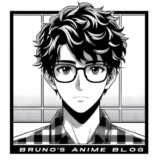
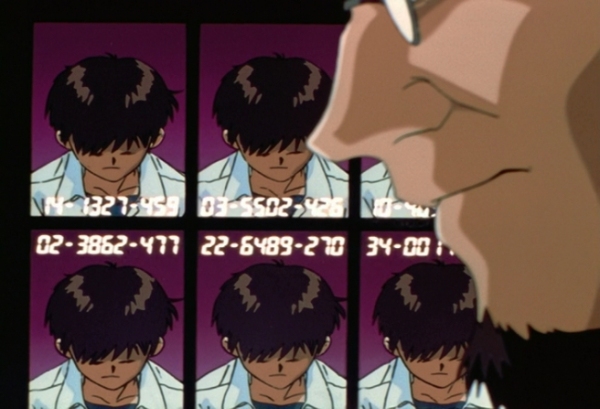
You’ve got a very nice, developing writer’s voice. Keep up the good work, it takes a lot of it, but this baby of yours will continue to grow. Kick ass!
Thanks Logan! 🙂